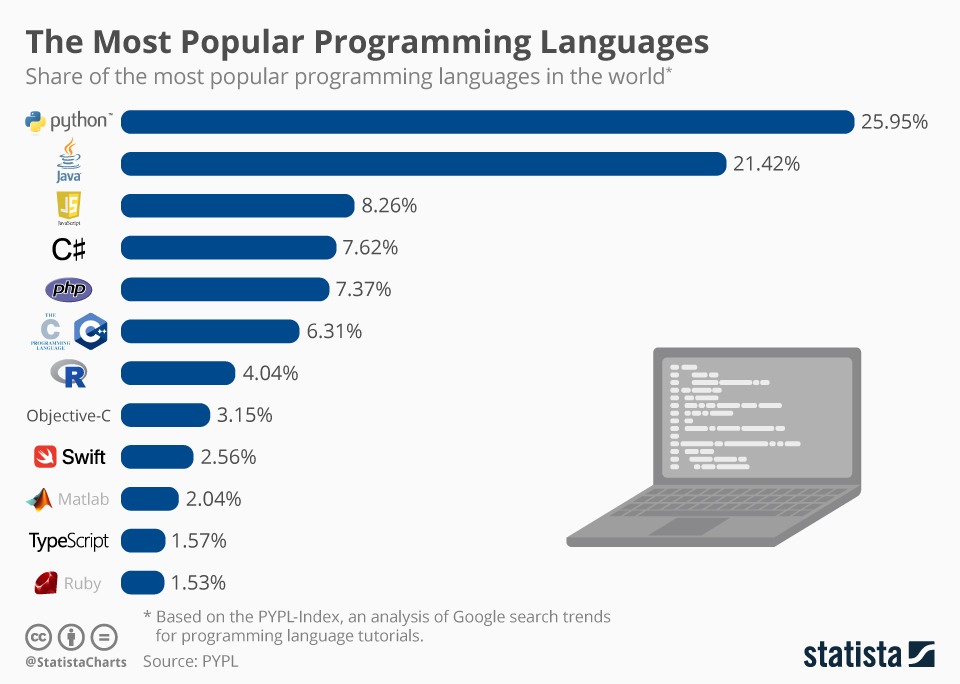
Moonpreneur
While previously it was not a common practice, today, many parents recognize the importance of programming skills in the digital age. As a result, there has been a significant increase in young tech enthusiasts and tech companies worldwide dedicated to introducing programming to kids.

With substantial resources being invested in this effort, programming classes and workshops for children are becoming more widely available than ever before.
Java is one of the most popular programming languages in this segment, used by millions of developers and powering billions of devices. Learning Java can help children develop skills such as problem-solving, logical reasoning, and computational thinking.
If you are interested in enrolling your child in a Java class, there are several things that you should consider:
1. Age and experience level
Since Java includes more advanced programming concepts such as multi-threading, exception handling, and interfaces, it can be challenging for younger kids to learn.
It also requires a certain level of maturity and logical reasoning skills with some prior programming experience. By the age of 10, most kids will have already gained foundational knowledge.
2. Curriculum
Coding programs and classes designed for children to learn programming concepts and languages often use game-based learning or interactive activities to make programming fun and engaging for kids.
To help engage kids better, it is important to start with the basics, such as learning the syntax, variables, and data types. Children can also benefit from learning programming concepts such as conditional statements, loops, and functions.
As they progress, they can learn more advanced topics such as object-oriented programming, graphical user interfaces, and database connectivity.
3. Teacher qualifications
Teaching Java to children requires creativity in developing fun and engaging lesson plans that keep children interested and motivated to learn. When selecting the teacher, ensure he/she has the required certifications and skills to conduct the classes.
They should also have a good understanding of teaching Java programming to kids and be able to effectively communicate programming concepts to children.
It’s also important to note that children may struggle with programming concepts at first, which would require the teacher to be highly patient and understanding throughout the learning process.
4. Class format
You should consider the class format, whether it’s online or in-person. In-person classes offer more hands-on learning and immediate feedback, while online classes can be more flexible and convenient.
Online classes offer flexibility in scheduling as well, allowing students to attend classes at their convenience. This can be especially helpful for children with busy schedules due to sports, extracurricular activities, or other commitments.
Most online Java instructors offer tailored classes to students’ individual learning styles and paces, allowing them to progress at their speed and receive personalized attention from their teacher.
5. Cost
The cost of Java classes for kids can vary depending on several factors, such as the location, the experience and qualifications of the teacher, the duration of the class, and the level of instruction provided. Some factors that may affect the cost of Java classes for kids are class curriculum, location, the instructor’s experience, class size, and the delivery format.
It’s important to research and compares prices from different providers to find the most suitable and affordable option. Parents can also look for free or low-cost options such as online tutorials, coding camps, or community programs. Some libraries and schools may also offer free or low-cost coding classes for children.
Considering these factors, you can zero in on a Java class that is a good fit for your child and can help them develop their programming skills.
Conclusion
Learning Java can open up many opportunities for children in the future. Java is a highly sought-after skill in the job market, and many industries require Java programmers. By learning Java at a young age, children can set themselves up for success in their future careers.
However, it’s important to note that learning Java may not be suitable for every child. Some children may find Java too complex or may not be interested in programming. It’s important to consider the child’s interests and abilities before introducing them to Java or any other programming language. It’s important to approach it in a way that is engaging and suited to the child’s needs.
Moonpreneur understands the needs and demands this rapidly changing technological world is bringing with it for our kids. Thus we are on a mission to educate and ignite the flames of entrepreneurship through our holistically created online STEM programs, which will help kids master the futuristic sciences such as Robotics, Game Development, App Development, Advanced Math, and much more!!
Register for a free 60-minute Robotics and Coding Workshop today!


















What is the full form of OOP in Java?
Object-oriented programming and system (OOPS) concepts in Java aim to minimize code complexity and promote code reusability by relying on the notion of “objects.” These objects encompass both data, represented through fields, and code, manifested as procedures
Every language has some basic things to consider what are they when it comes to Java?
In Java, the foundational principles of object-oriented programming (OOP) encompass abstraction, encapsulation, polymorphism, and inheritance. Beyond these core concepts, Java also integrates three additional OOP principles: association, aggregation, and composition. Employing these principles facilitates the development of high-performance Java code in accordance with OOP principles as of 2023.